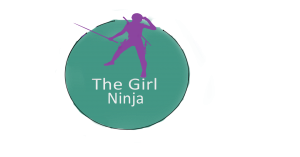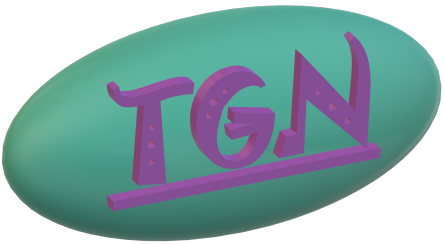
Career mentors and sponsors should be thought of as a need from very early on in your career, especially for 1st generation college graduates with little guidance from family and friends on the specifics of navigating a professional terrain. This post will cover what a mentor and sponsor are, and how they are different including the details of what a mentor and a sponsor can do for your career. We will then discuss how to find mentors and sponsors, as well as maintain relationships with your mentor and sponsor.
A mentor is an individual that can provide you feedback on your actions, guidance on your career options, and offer insight on how to get where you want to go. Ultimately a mentor is a coach for your career, they are the one you confide in when you are uncertain, the one who will give you the honest truth when you screw up on the job, and the one who will provide you with direction to get back on track. For you to get value out of a mentor, they should have experience you are looking to obtain and be either at your level, if you are looking to make a lateral move, or no more than 2-3 levels above your position. Sometimes the best mentors our 1 level above your position. Honestly, your relationship with the individual matters more than the difference between your positions.
A sponsor is an individual that speaks up on your behalf to advocate for what you want. Obviously a mentor would also be your sponsor, so what is the difference between a mentor and a sponsor, a sponsor should be in a position of leadership that can advocate for you in discussions where you and your mentor are not invited. For example, in department discussions around re-organizations, your sponsor would be present but not your mentor. Another example is in promotion discussions. In many companies promotions are discussed amongst leaders, where a unanimous vote is needed. If you have a sponsor present at that discussion it will increase your chances of getting a unanimous vote in your favor. So, when considering a sponsor you will want to look for an individual that knows your career highlights and where you want to go in your career.
How to Find a Mentor and Sponsor
Identifying potential mentors or sponsors and connecting with them can be very overwhelming for any one individual. One way to go about finding a mentor or sponsor is the Chat Shakedown Method. I created the Chat Shakedown Method years ago when I was looking for a mentor to systemize the search in an organized fashion. Below I describe the actions that you can take using the Chat Shakedown to find and connect with a mentor or sponsor.
CHAT SHAKEDOWN
Step 1) Make a List
Start a list of individuals you know in your industry that you think could be your mentor or sponsor. This list can include individuals that you are acquainted with or individuals you are not acquainted with. Try to think of at least 5 individuals to include in your list, the more the better. After you make your list rank the individuals in order of who you like the most. Your ranking should include questions like does their career path model what I hope to achieve, and do I like their management style.
As you make your list try to consider diversity factors. For example, I work in the biopharma industry where the majority of the workforce is male. As a female in the industry I strategically looked for a male mentor to ensure I got a perspective of the majority of my peers.
Step 2) Coordinate Chats
Once you have your ranked list of potential mentors and/or sponsors, send out half hour meeting invites starting with potential mentor or sponsor number 1 and work your way down your list. Below is an example of an invite.
Subject: Career Chat
Message: Hi, I am trying to learn more about the business and would like to meet with you to better understand your current role in the company and your career journey. Please let me if you are comfortable meeting with me for a half hour to chat.
Best,
I know the invite above doesn’t say anything about a mentor or sponsor. Let me explain why. A mentorship or sponsorship is a process. By starting with a chat focused on their career you can learn more about the individual that you are meeting with to better gauge your connection with them and what they have to offer you as a mentor or sponsor.
Step 3) Prep for Career Chat Meet-Up
Before you meet with your potential mentor or sponsor take some time to jot down 3-5 questions to guide the discussion. Below are example questions to bring to career chats with you.
Question 1: How did you end up in this industry, did you always know or did something happen that specifically brought you to the industry?
Question 2: How did you transition from your previous role to your current role?
Question 3: What are your career goals following your current role?

With a good fit mentor or sponsor the chat should flow easily and naturally. For individuals you meet with and struggle to chat for a half hour, maybe re-assess how and if you want to further develop that professional relationship.
Once you identify your top choices, ask for a second ½ hour meeting with your number 1 preference. This time the discussion should be focused on your career goals to assess how they respond to your questions and the kind of help they will provide. Nothing is locked in stone yet, so if you attend this meeting and you don’t feel great about how it goes then set up another ½ hour meeting with number 2 on your list. Then continue the meetings as you work down your list.
In this second meeting you will want to have three questions prepared to drive the discussion. Each question should vary in purpose to assess how the candidate responds to different types of questions. One should focus on navigating your future career path, another on a challenge you are trying to overcome, and the third should focus on advocating for yourself. Below are three example questions to bring with you to the second meeting.
Question 1: As an associate I have a goal to advance to an engineer within 4 years in department X. I am targeting to get assigned to the following deliverables and apply to these opportunities to get there within my target 4 years. Do you know of any other opportunities or deliverables I should target to improve my chances of meeting my 4 year goal?
Question 2: There is a new colleague on my team, and whenever we are supposed to work on a project together I schedule time with them, but they do not show up or show up distracted and don’t contribute. Do you have any advice or experience you can share working through this challenge? (Please note you do not give a name or complain, this conversation is focused on what they have to offer, save your complaints for a casual friend)
Question 3: I worked really hard on project X for the past two months, and plan to complete project X this month. I want to be certain I am recognized for my work. Do you have any suggestions of where it is best for me to showcase this project?
Those three questions are examples and should be tailored to best fit your situation of course. Below is an example of the meeting invite for this 2nd meeting.
Subject: Career Chats Continued
Message: Hi, thank you again for meeting with me last month. I feel more confident in my knowledge of the business after talking to you. I have a couple of questions around my career, and given your knowledge of this company and industry I would like your feedback. Please let me know if you have the time to discuss.
Best,
After you have this second meeting, assess both the first and second meeting for your candidates, and select the individual that you felt the conversation flowed naturally with as well as offered actionable and relevant advice. Once you have a top choice, your next step is to formally ask for regular meet-ups. This ask can be done at the end of your second meeting if it naturally fits or you can ask at another time. I do feel like this is best asked in person. Below is an example of what you would ask to initiate a formal mentor/sponsorship relationship.

Thank you again for your time, I feel that I’ve been able to advance my development with your guidance. I am wondering if you would be comfortable meeting with me regularly, maybe once a month for me to ask for feedback around my career?
Be flexible with the frequency of your meeting. If you know this individual is busier ask for once a quarter or ask if they have a preferred frequency. If they say yes, this is the start of your mentor/sponsorship relationship.
You might be wondering, but we didn’t actually ask if they would be my mentor or sponsor. I choose to not ask that question outright. The reason being that a senior individual at my company once expressed that if you have to ask me to be your mentor then we don’t have the relationship for a mentorship. They felt that a mentorship was a relationship that should naturally develop, and that it was precocious for someone to ask.
After hearing that, I decided it was best to not start a relationship with that exact question, but rather focus on building a relationship. Once you have their permission to start meeting regularly with them it is important to maintain your relationship with them to express that you value their time and advice. The next section details how to maintain your relationship with a mentor or sponsor.
How to Maintain Your Relationship With a Mentor or Sponsor
Having either a mentor or a sponsor or a mentor and a sponsor is a strategic career move that you control. Ultimately what you get from a mentor or sponsor will be dependent on what you put into the relationship. Remember that relationships are work and like any other relationship a mentorship or sponsorship requires attention.
To maintain your relationship with your mentor or sponsor be certain to schedule or if they prefer, have them schedule recurring meetings with you. At the meetings be sure to attend prepared with planned discussion points and on-time to make the most of your mentor’s or sponsor’s time.
Also, it’s not required but you should know that thank you notes at the end of the year or a small gift is a nice way to say thank you. Be certain this is work appropriate, and appropriate for your relationship with your mentor. A good idea is a handwritten note to say thanks and personalized post-it notes for them.
After this, know that your career goals might change or your mentor/sponsor might move on so this process might need to be repeated. At this time you might revisit another individual on your list, as a lot changes over time or you can restart the process. It’s also ok to have more than one mentor or sponsor. In particular, this is helpful when the different individuals are at different levels and in different departments.
Well, that is all the detail I have to offer on mentorships. Good luck finding your match and maintaining your relationship with them.


